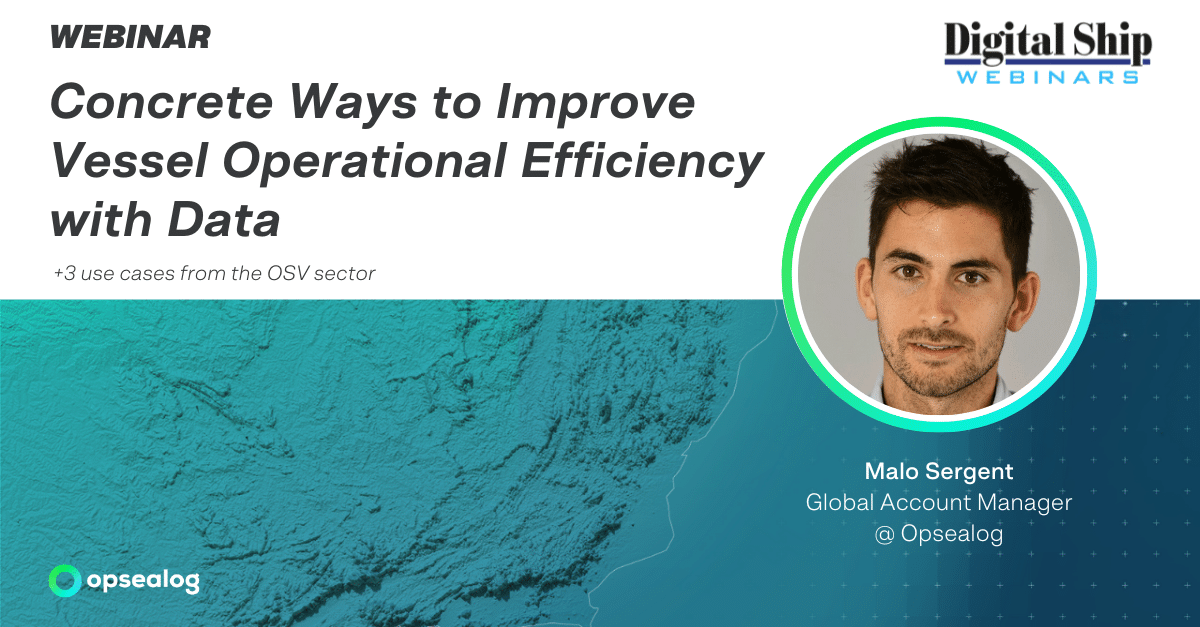During a webinar hosted by The Digital Ship, on June 27th, 2024, Malo Sergent, Global Account Manager at Opsealog presented concrete ways to improve vessel operational efficiency with data. You will hear 3 use cases from Offshore Support Vessels, relevant to operators of all kinds of vessels.
What will you learn?
Malo Sergent discussed how Opsealog’s work with OSV operators helps improve fuel consumption and vessel operational efficiency.
Improving fleet performance is not all about collecting data that is only looked at when an accident occurs. Thus, it’s crucial to bring maritime expertise to analyze the collected data and extract value from it. Fuel efficiency can only be achieved with proper advice and concerns from both, the solution provider and client sides to unlock the potential of the data collected.
About the three use cases :
- The first use case explored monitoring fuel consumption to identify abnormal behaviors. As well as why guidelines must be followed (speed and engine utilization), and be careful of any misfunction of engines or equipment.
- The Second use case explained how mixing data sources to get more value. We can identify through AIS positions that a vessel appearing to be moored at sea running out of fuel when it was supposed to be in port. Or a vessel that is kept on standby for 2 days. We can also compare fuel consumption models with fuel consumption sensors to identify sensor malfunctions.
- The third use case was about identifying the most suitable vessels for a task. For example, we might see that much larger accommodation vessels are used than needed given the crew numbers.
While these factors might seem straightforward to identify individually, addressing a company with a large fleet that seeks a concise list of specific changes to significantly reduce fuel consumption presents a much harder data challenge.
Watch the full webinar here:
Want to learn more about how we can improve your vessel’s operational efficiency, book a demo!

